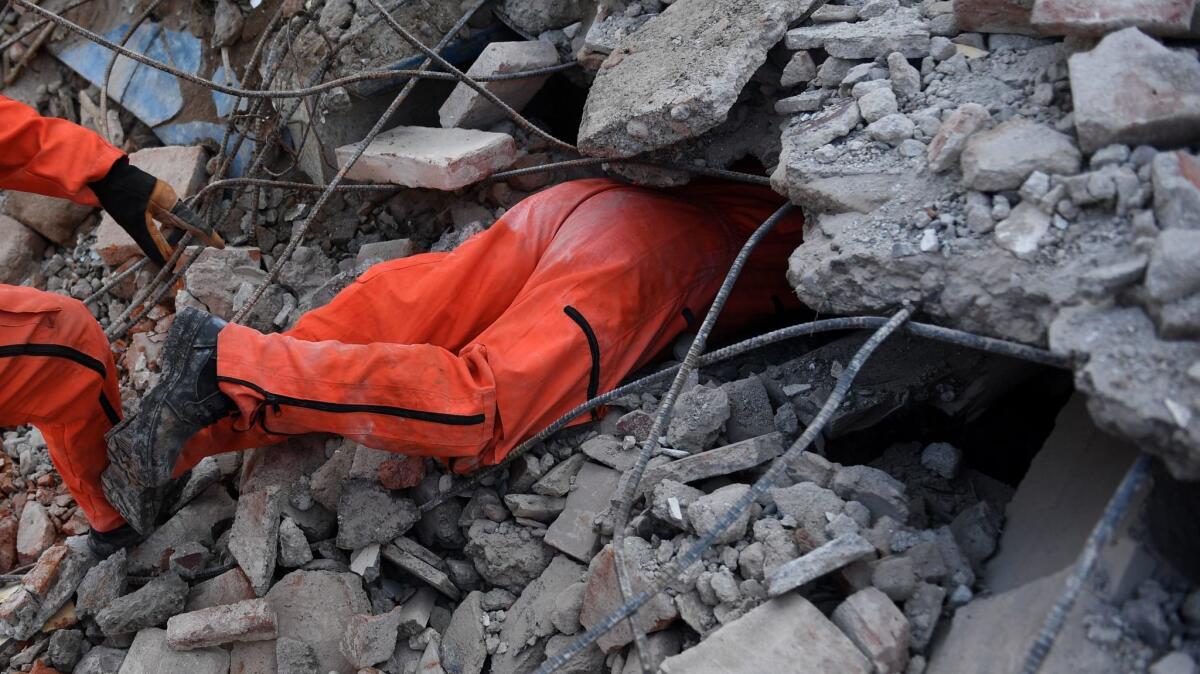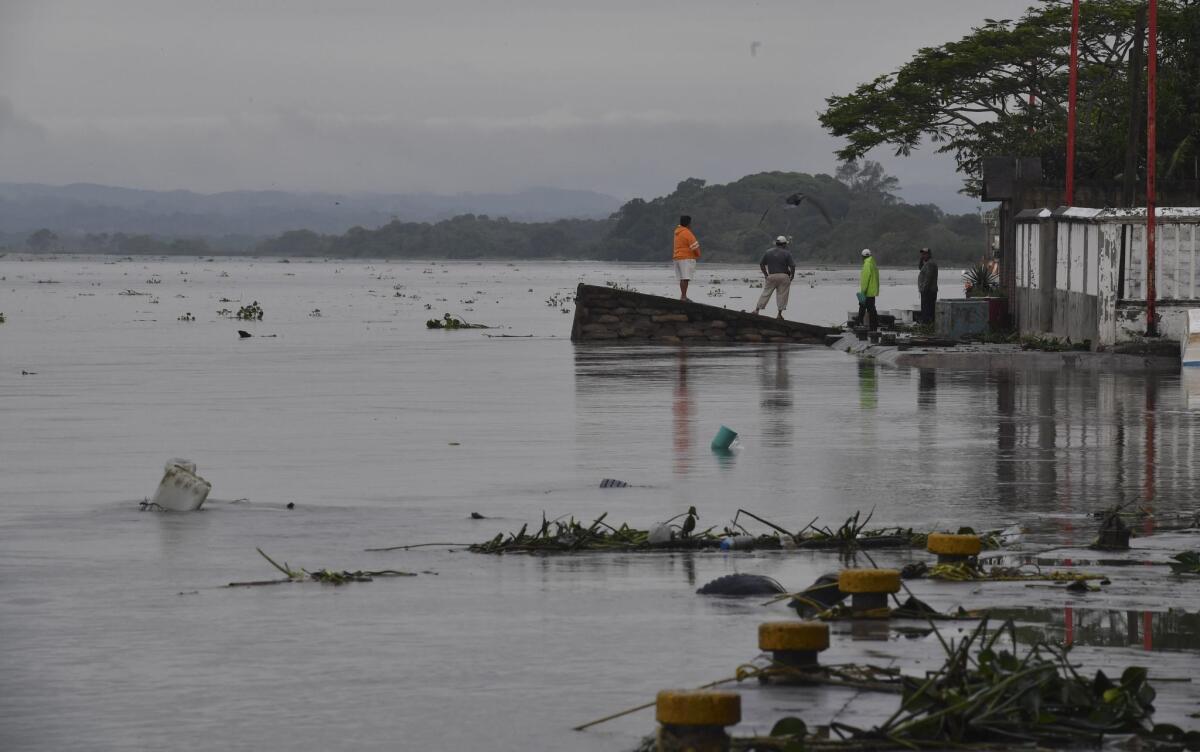Hurricane Katia strikes Mexico, killing at least two, as the nation still reels from a massive earthquake

- Share via
Reporting from Mexico City — The death toll from Thursday’s massive earthquake off the coast of southern Mexico rose to 61 Saturday as emergency responders scrambled to clear debris, restore power and provide housing for thousands of displaced people in one of the country’s poorest and most remote regions.
In a televised address Friday night, Mexican President Enrique Peña Nieto declared three days of mourning.
“The power of this earthquake was devastating,” Peña Nieto said, speaking from Juchitan de Zaragoa, a city in Oaxaca state where at least 36 people died. “But we are certain that the power of unity, the power of solidarity and the power of shared responsibility will be greater.”
Rescuers successfully pried several survivors from the rubble in Juchitan on Friday, but also discovered others who had perished. The magnitude 8.1 earthquake, which struck shortly before midnight local time in the Pacific Ocean, about 60 miles off the coast of the state of Chiapas, leveled hospitals, churches and the city’s main government buildings.
One in three homes is now uninhabitable, Peña Nieto said. On Friday evening, some residents pulled mattresses outside and slept in the streets.

As Mexican authorities rushed supplies and help to the regions most battered by the earthquake, Hurricane Katia struck the east coast of Mexico early Saturday as a Category 1 storm.
Luis Felipe Puente, head of Mexico’s national emergency services agency, said two people were killed by the hurricane, which roared ashore in Veracruz state, pelting the region with intense rains and winds.
The hurricane quickly lost strength after hitting land and was downgraded to a tropical storm.
The U.S. National Hurricane Center said the storm’s maximum sustained winds had dropped Saturday morning to about 35 mph. Still, the hurricane center predicted the storm could bring three to six inches of additional rain to a region with a history of flooding and deadly mudslides.
Meanwhile, the earthquake’s death toll appeared likely to rise as authorities continued to comb through rubble in southern Mexico.
Peña Nieto said the earthquake killed 45 people in the state of Oaxaca, 12 in Chiapas and four in Tabasco, on Mexico’s Gulf Coast.
The earthquake, one of the biggest in Mexico’s history, was felt hundreds of miles away, in Mexico City, where people fled violently swaying buildings.
Aside from a few damaged buildings, the capital city was fine. That is thanks in part to its distance from the earthquake’s epicenter but also due to an earthquake warning system and stricter building codes established after thousands of people were killed in the city and whole neighborhoods leveled in a devastating earthquake in 1985.
Cecilia Sanchez in the Times’ Mexico City bureau contributed to this report.
Twitter: @katelinthicum
More to Read
Sign up for Essential California
The most important California stories and recommendations in your inbox every morning.
You may occasionally receive promotional content from the Los Angeles Times.










